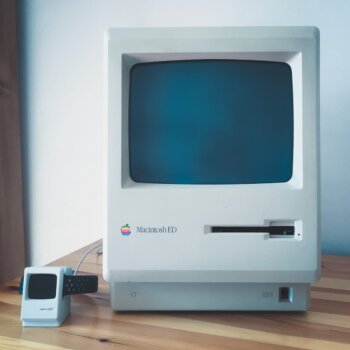You may not realize it yet, but the tech giants are battling to gain entry into your home by making it smarter. So far, Amazon is in the lead but Google is fighting back. Apple, Samsung, Microsoft, and Intel all have bets in the “smart home” market as well, and a number of Chinese firms could emerge as important players in the decade ahead.
The reason for all this investment in the smart home market isn’t just because these companies want to sell you a bunch of cool devices. It’s because they know that over the next decade your home will be turned into a suite of very lucrative services.
A service tether is an intelligent user interface that connects a product to the company behind it. Service tethers turn products into services. The battle for the smart home is thus actually a battle to own the future of service tethers into your home.
The Market for Service Tethers
If you want a good overview of the smart home market opportunity, I recommend Mapping the Smart-Home Market, by Sonny Ali and Zia Yusuf. Here is their analysis of the various market niches within the overall smart home market:

What’s clear from their analysis is that, at least in its first wave, infrastructure — such as energy, air conditioning, lighting, and home security systems — is the dominant driver of smart home technology. Entertainment is the other important initial driver.
Drivers of the Smart Home Market
So why these particular markets first? At a fundamental level, these are markets where end users have demonstrated a willingness to spend sizable chunks of money on services. We pay monthly utility, home security, and entertainment bills.
One might wonder about the long-term sustainability of smart home offerings that compete head-to-head with an established utility monopoly. But as Tivo and Netflix both demonstrate, entrenched monopolies don’t always have a great sense for what end users want — and even when they do, their culture and established ways of doing things often get in the way. If you’ve ever tried using the Comcast Xfinity menu to find Game of Thrones, you know what I’m talking about:

The Tether as Interface
Build a good user interface that really solves a problem and you will attract users. Build a good user interface that can be extended to solve a broad range of problems, and you have a platform that will attract many users — and partners.
Over the next several years, more and more of the appliances, devices, and other products we bring into our homes will spring to life with smart service tethers. We’re used to subscribing to cable services for movies and shows and music streaming services for music. It is still unclear what kind of business model will enable broad adoption of service tethers for things like your washing machine, microwave oven, water heater, and bed. My guess is that we will see two basic approaches.
In some cases, product companies will try to go it alone by building their own service tether interfaces for end users. The initial forays here will increasingly focus on some form of speech-enabled chatbots. Chatbots will change the nature of our relationship with organizations and one of the primary ways they will do that is through smart products connected to service tethers.
The real question here is whether independent product makers will be able to compete against powerful smart home platforms from Amazon and Google when it comes to building service tethers. These companies have amazing software development resources to throw at cutting-edge speech recognition, Augmented Reality, and other basic innovations that will be important to the future of service tethers. As platforms, these companies also offer a layer of interoperability that allows devices and services from different companies to talk to each other. Their real advantage, however, is that most people are unlikely to want to learn a different way of interacting with all the various products in their homes. Most of us will want a consistent interface, and in this sense, we are talking about an operating system: an operating system for our homes.
Amazon, the Future of Smart Homes
Will the smart home evolve into a winner-take-all market or some form of oligopoly like today’s market for mobile devices? It’s still not clear, of course, but if I were running a product company right now I would be looking at two things. The first would be a truly neutral, open source ecosystem for smart home technologies. Failing that, and knowing that it would eventually curtail my long-term upside, I would start ramping up on Amazon’s Smart Home Skill API.
Why Amazon over Google? With Android, it is true that Google has proven its ability to build a platform ecosystem. But Amazon already has a sizable lead, with Alexa controlling some 70 percent of the estimated 25 million smart home devices.






























